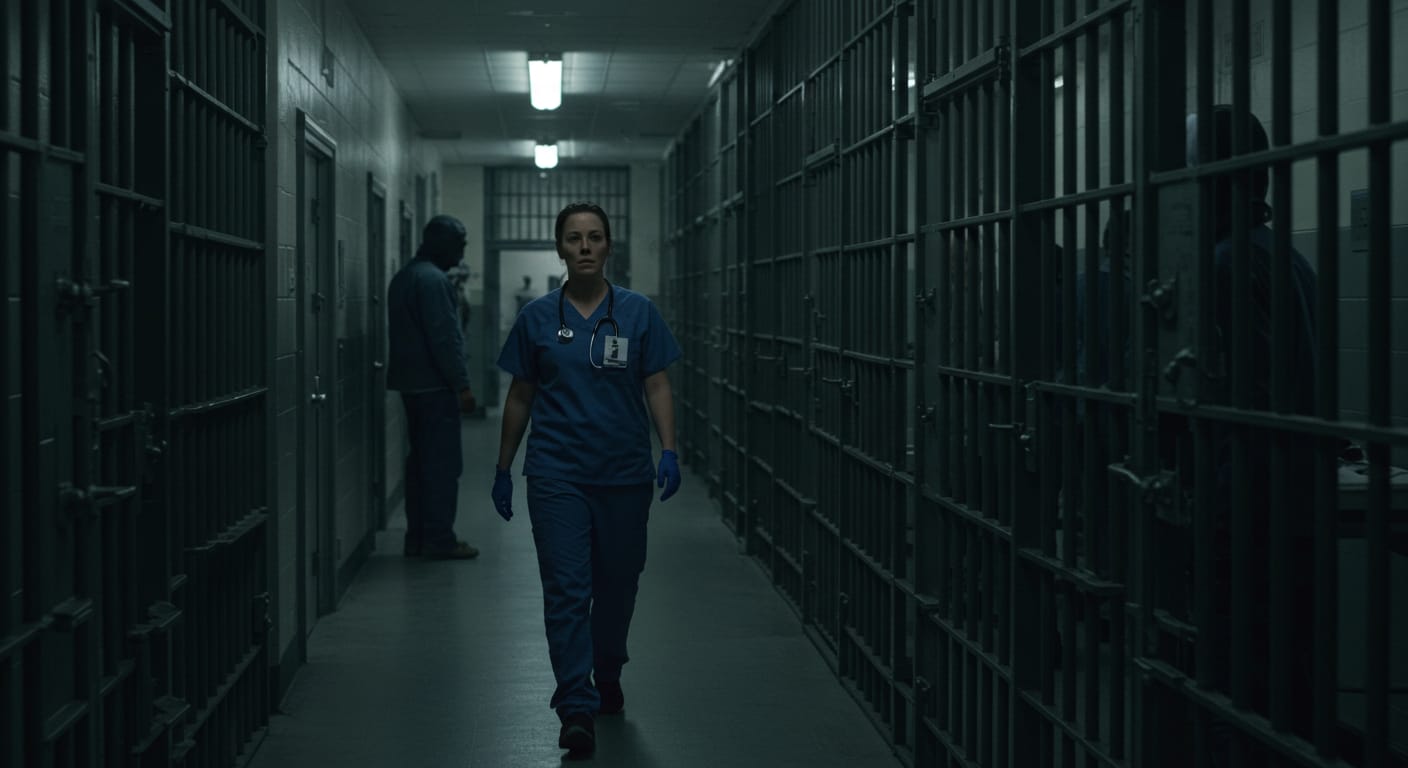Lock Confessions: A Prison Nurse’s Story
My time as a prison nurse across several correctional facilities in Philadelphia and Atlanta was nothing short of intense—a mixture of adrenaline, vulnerability, and unforgettable stories. One minute I was checking blood pressure. The next, I was looking over my shoulder, fearing what might be hiding around the corner.
Moments That Still Haunt Me
Some days felt deceptively calm. I’d do routine health checks for inmates who barely spoke. On others, I’d feel the weight of danger—the kind that settles in your bones. One prisoner called me directly on my official number, somehow using a cell phone that he should never have had access to. Another knew the make and color of my car… and who dropped me off at work.
That sense of being watched—by people with criminal pasts—never truly leaves you.
The Day I Met a Crime Family Member
But those pale in comparison to the time I was assigned to care for a man tied to organized crime—John “The Dour” Don Stanfa, an infamous figure housed at the Philadelphia Industrial Correctional Center (PICC).
Even the officers chuckled nervously when they learned I was his assigned nurse.
I was pregnant at the time, which made everything feel ten times more terrifying. Each time I took his vitals, I felt a mix of nausea and dread. The first time he spoke to me, it was to ask why I worked so hard. His voice was rough, almost taunting.
The day he asked me for a nail clipper—a banned item—I felt my knees go weak. When I refused, he laughed. To this day, I don’t know if it was mockery, a warning, or a test. But I do know that standing my ground changed the way the guards looked at me. I had earned respect, not just from them—but from myself.
What Every Aspiring Correctional Nurse Should Know
People often ask me, “What’s it like working behind bars?”
The truth is—it’s not for the faint of heart.
You must maintain strict professional boundaries. You’ll be surrounded mostly by male inmates, many of whom are skilled manipulators. Kindness can be mistaken for weakness. Flirting can become dangerous. A correctional facility is no place for emotional entanglements.
The Unwritten Rules of Correctional Nursing
-
Do not read their charges. This helps you provide unbiased care and maintain a clinical mindset.
-
Stay alert, always. Even routine tasks can shift into emergencies fast.
-
Build a relationship with officers. They are your safety net.
-
Show respect to every inmate, but never drop your guard.
-
Ask for backup when unsure. Pride can be costly in this environment.
Why It Was All Worth It
Yes—it was stressful, even terrifying at times. But my years in correctional nursing shaped me into a stronger, sharper, and more grounded nurse. After working behind locked gates and razor-wire fences, every other nursing job felt like a breeze.
I left corrections with a deeper understanding of healthcare, trauma, and human behavior. I also left with a renewed respect for personal boundaries, situational awareness, and inner resilience.
So, to any nurse thinking about this path—walk in with your eyes wide open, your heart steady, and your mind sharp. You won’t leave unchanged. But you will leave stronger.


